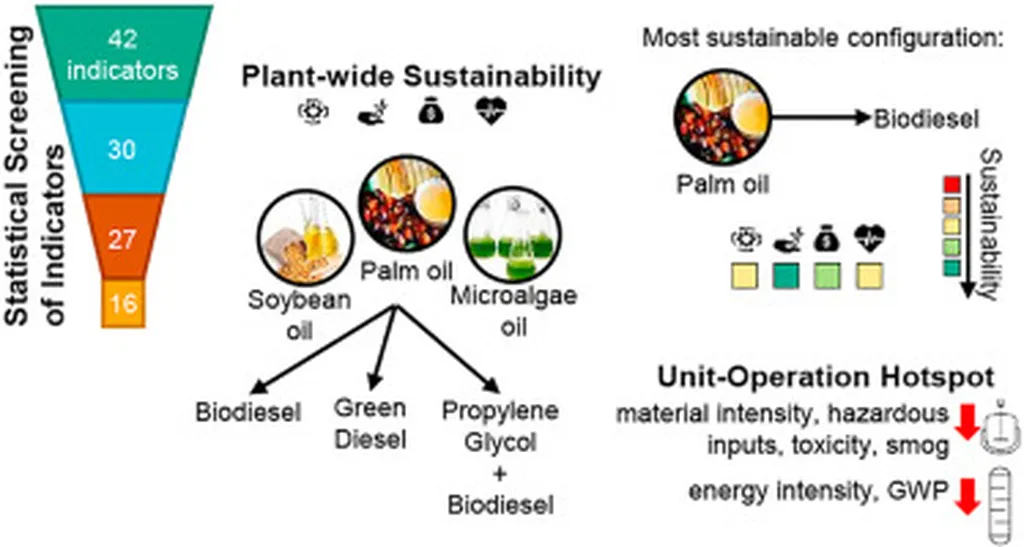In the quest for sustainable power generation, researchers are continually exploring innovative fuel combinations to reduce emissions and enhance engine performance. A recent study published in *Acta Technologica Agriculturae* has shed light on the potential of propylene glycol as an additive in biodiesel-diesel blends, offering promising insights for the agriculture sector and beyond.
The study, led by Ardabili Sina from the University of Mohaghegh Ardabili in Iran, investigated the environmental impact of using propylene glycol in conjunction with biodiesel and diesel fuels. The research team mixed propylene glycol with B2 and B5 biodiesel fuels at varying ratios (3%, 5%, and 7%) and tested these blends in a diesel engine. The environmental assessment was conducted using life cycle assessment (LCA) methodology, specifically the IMPACT2002+ life cycle inventory analysis.
The findings revealed that the fuel blend containing 5% biodiesel and 7% propylene glycol (B5PG7) demonstrated the lowest midpoint and endpoint indicators of environmental impacts, showing an 18% improvement over the control fuel. This suggests that propylene glycol can play a significant role in enhancing the sustainability of power generation cycles.
“Our results indicate that propylene glycol can be a valuable additive in biodiesel-diesel blends, not only improving engine performance but also reducing environmental impacts,” said Ardabili Sina, the lead author of the study. “This could have substantial implications for the agriculture sector, where diesel engines are widely used.”
The commercial impacts of this research are noteworthy. For the agriculture sector, which relies heavily on diesel-powered machinery, the adoption of more sustainable fuel blends could lead to significant reductions in greenhouse gas emissions and other pollutants. This aligns with the growing global emphasis on sustainable agriculture and renewable energy sources.
Moreover, the study highlights the importance of life cycle assessment in evaluating the environmental performance of new fuel combinations. By considering the entire life cycle of the fuel, from production to combustion, researchers can identify the most sustainable options and guide policy and industry decisions.
As the world continues to seek ways to mitigate climate change and reduce environmental impacts, innovations in fuel technology will play a crucial role. The findings of this study offer a promising avenue for further research and development in the field of sustainable power generation.
“Future developments in this area could focus on optimizing the ratios of propylene glycol and biodiesel to achieve even greater environmental benefits,” added Ardabili Sina. “Additionally, exploring the use of propylene glycol in other types of engines and applications could open up new possibilities for sustainable energy solutions.”
In conclusion, the research published in *Acta Technologica Agriculturae* by Ardabili Sina and his team provides valuable insights into the potential of propylene glycol as an additive in biodiesel-diesel blends. The study’s findings could pave the way for more sustainable fuel options in the agriculture sector and beyond, contributing to the global effort towards sustainable power generation.

